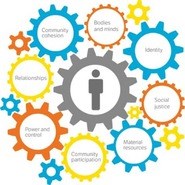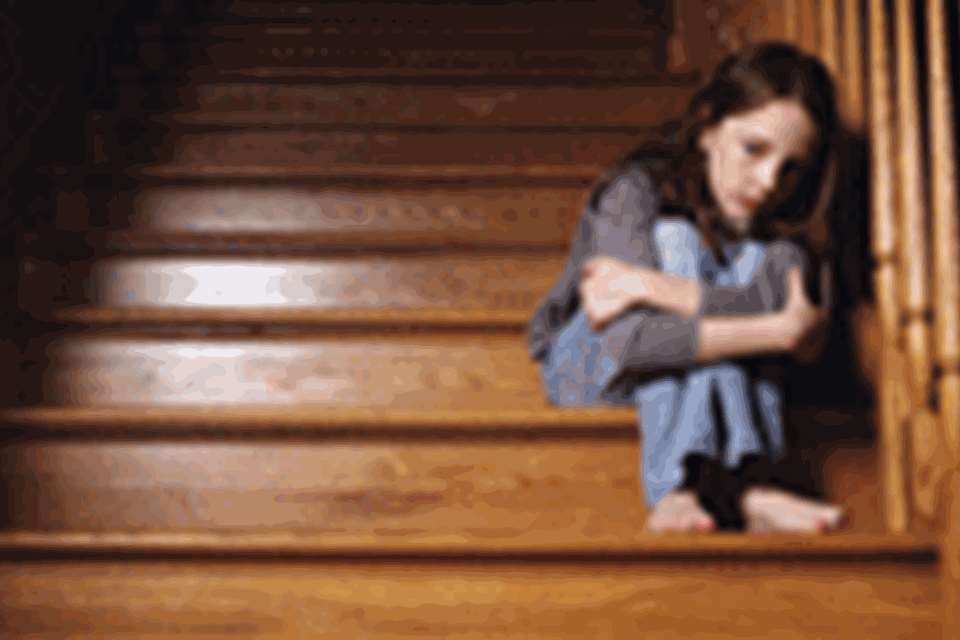A Unique Child: Inclusion - Getting to know you
Dr Katherine Runswick-Cole
Monday, February 10, 2014
A project funded by the charity Scope has been assessing resilience in disabled children and adults. Researcher Katherine Runswick-Cole offers some insight into the process and conclusions.

Kids are resilient, aren't they?' is a well-worn phrase. Yet despite this widely held belief that most children have the ability to 'bounce back', there is also a common view that not all children are equally resilient. Looked-after children, children from migrant communities and children from single parent families are often believed to face greater threats to their resilience than other children. But what of disabled children?
To date, they have been largely ignored in resilience research, which has tended to focus on why some children, even in the face of difficult circumstances and setbacks, seem to take things in their stride, while others do not. Generally, psychologists have concluded that resilience is an individual and innate character trait. Although, they add, we only know if a child is truly resilient if they are able to overcome adversity - perhaps the death of a family pet, divorce or bereavement.
Research has also pointed to exposure to risk as an essential factor for the development of resilience in children. So, for example, learning to take risks on equipment in the park or the playground is seen as preparation for resilience in later life.
Disabled children occupy a particularly complex and contradictory position in relation to resilience. On the one hand, if a child has cognitive or physical impairment it can automatically mean that they are not thought of as being resilient at all. These children are often labelled 'vulnerable', with the consequence that they are given fewer opportunities to take risks and are seen as less and less resilient.
On the other hand, when disabled children are thought to be doing well - if, for example, they are described as having 'overcome' their physical or cognitive difficulties to live 'normal' lives - then they are seen as resilient.
These understandings have been questioned by disabled people who do not necessarily see the presence of an impairment as a either a 'risk' factor or something to be 'overcome'. These complicated and contradictory understandings of resilience in the lives of disabled children became the focus of recent a research project.
EXPLORING RESILIENCE
From September 2011 until February 2013, I was part of a research team from Manchester Metropolitan University that worked with the UK disability charity Scope to explore resilience in the lives of disabled people across the life course. We worked with disabled people from the ages of four to 83 and we wanted to find out:
- what resilience means to disabled people at different stages across the life course
- how resilience, or a lack of it, has affected disabled people's ability to negotiate challenges and make the most of opportunities
- what works in building resilience among different groups of disabled people.
We also worked with disabled people to develop a toolkit for use by Scope to support resilience in the lives of disabled people throughout life.
BUILDING RESILIENCE: THE ESSENTIALS
As part of the project, we became interested in how the work of Michael Ungar, a social psychologist from Canada, might help us to understand resilience in disabled people's lives. Ungar worries that when we think of resilience as a personal characteristic, it is easy to blame children who fail to bounce back.
He also describes the ways in which resilience is understood differently in different cultures across the globe - so, for instance, leaving school early and having a baby might be seen as a risk factor for developing resilience in the UK, but might be seen as an act of resilience in another country.
This is important because it means that resilience means different things to different people in different places and emerges in different ways. This contrasts with traditional psychological approaches that see resilience as an individual character trait that only emerges in adversity.
From our research, we conclude that contrary to popular belief, resilience is not an individual trait but a feeling or sense of self that emerges when a child is well supported. Using Ungar's work, we identified the following as essential for the development of resilience in disabled children's (and adults' lives).
- Material resources Availability of financial, educational, medical, and employment opportunities or assistance, as well as access to food, clothing and shelter to meet basic needs.
- Relationships with significant others, peers, adults and children or young people within one's family and community.
- Identity Personal and collective sense of self and purpose, self-appraisal of strengths and weaknesses, aspirations, beliefs and values, including spiritual and religious identification.
- Bodies The influence of one's body - including impairment - in relationships with others.
- Power and control Experiences of caring for one's self and others, the ability to affect change in one's social and physical environment to access health, educational and community resource.
- Community participation Taking part in one's community through a host of activities and engagements.
- Social justice Experiences related to finding a meaningful role in community and a sense of social equality.
- Community cohesion Balancing one's personal interests with a sense of responsibility to the greater good; feeling a part of something larger than one's self socially and spiritually.
(Taken from Runswick-Cole and Goodley, 2012)
These resources are not separate categories, but they are overlapping and interconnected.
RESILIENCE IN CHILDREN: A PERSONAL OPINION
In the project, we wanted to listen carefully to the views of disabled young children. We drew heavily on the principles of the Mosaic Approach (Clark, McQuail and Moss, 2003) and used pictures, tours and drawings to get children's views, as well as simply spending time with children and their families. Here is one child's story:
'My name is Peppa. I am five years old and I go to a special school. I live with my mum, dad, sister Kagome and brother Mr Bob.
'People say that I am cheeky and funny and have a great sense of humour. I can be very determined and very stubborn. I am always busy and I never sit still and I never stop. One of my favourite jokes at the moment is to say "no" when I mean "yes". That is a very funny joke! It makes me laugh!
'Eating is one of my favourite things to do. I love biscuits, pasta, peaches, apples, pears and fruit cake. I like to play rough and tumble with my dad and to chase around and bounce on the trampoline. I like reading books. My favourite book is The Tiger Who Came to Tea.
'My perfect day would mean getting up and having cake for breakfast. I would watch Peppa Pig on TV. Then I would go to the adventure playground and perhaps for a swim, and if there was time, I would go to the shops and I would walk around holding my mum's hand or dad's hand -that would be a very exciting thing to do. I would have spaghetti bolognese for my tea and my brother would read me lots of stories.
'If you want to get to know me, there are a few things you need to know:
- you need to learn about the things I like and I don't like
- you need to keep me safe by watching I don't fall over and helping me down the steps
- you need to keep an eye on me when I am eating - just in case I choke
- if we go somewhere new, you have to check to make sure I will be safe
- please don't talk about me when I am in the room as if I'm not there
- please use my communication book
- learn how I say yes and no
- learn the signs I use.
Thank you, Peppa x'
We think that Peppa is a resilient child, but we don't think that this is because she was born that way or because she has overcome adversity. Peppa is resilient because she has the things in life she needs to make her feel that way: she has great relationships with her family and others, she has a comfortable home and is able to take part in activities in her local community, and she has power and control in her life because her communication is supported.
Building resilience means working with children, their parents, carers and others to improve the network's access to resources in their lives so that everyone can bounce back - with support.
others to improve the network's access to resources in their lives so that everyone can bounce back - with support.
Dr Katherine Runswick-Cole is a senior research fellow in disability studies and psychology at the Research Institute for Health and Social Change, Manchester Metropolitan University
MORE INFORMATION
For more information about the project, visit http://disabilityresilience.wordpress.com/2013/06/23/disability-resilience
- Research Institute for Health and Social Change at Manchester Metropolitan University, www.rihsc.mmu.ac.uk
- Scope, www.scope.org.uk.






